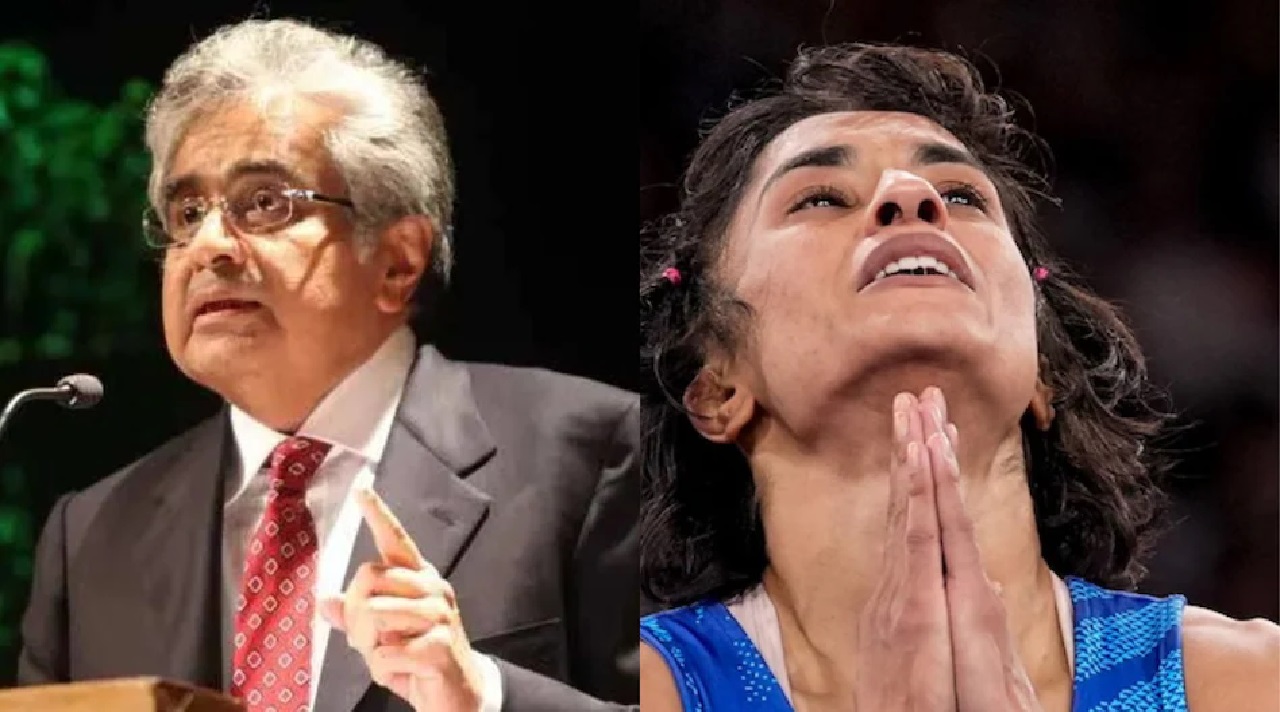Background of the Disqualification
The Court of Arbitration for Sport (CAS) has announced that it will deliver its verdict on Vinesh Phogat’s appeal regarding her disqualification from the women’s 50 kg wrestling final before the conclusion of the Paris Olympics 2024. The disqualification, which occurred on August 7, was a result of Phogat being 100 grams overweight at the weigh-in just before the final match. This ruling came as a significant blow, given the weight discrepancy was marginal.
The Role of Harish Salve
On August 9, Vinesh Phogat’s appeal represented by Harish Salve, one of India’s most esteemed legal minds. Salve, who is well-known for his expertise in high-profile legal cases, argued on behalf of Phogat and the Indian Olympic Association (IOA) in this crucial hearing. Salve’s involvement adds a layer of gravitas to the proceedings, given his storied career in both national and international legal spheres.
Who is Harish Salve?
Born in 1955, Harish Salve is a distinguished Indian lawyer recognized for his extensive experience in constitutional and international law. His legal journey began in 1980 with an internship at JB Dadachandji & Co, followed by a tenure under Soli Sorabjee, the former Attorney General of India. Salve was appointed a senior counsel in the Supreme Court in 1992 and served as Solicitor General of India from 1999 to 2002. He declined a second term as Solicitor General due to personal reasons but continued to make significant contributions to the legal field.
Salve was admitted to the English Bar in 2013 and became a member of the prestigious Blackstone Chambers in London. His notable cases include representing Bilkis Bano in the Gujarat riots case, defending Bollywood actor Salman Khan in the 2002 hit-and-run case, and securing a landmark victory for Vodafone in a Rs 1,100 crore tax dispute against the Indian government.
One of Salve’s most prominent achievements came in 2019 when he represented India at the International Court of Justice (ICJ) in the Kulbhushan Jadhav case. Salve’s arguments led the ICJ to mandate that Pakistan suspend Jadhav’s death sentence and provide consular access to India, showcasing his prowess in international arbitration. Despite being one of India’s highest-paid lawyers, Salve took a token fee of Rs 1 for this case, underscoring his commitment to public interest.
The Appeal Process and Vinesh Phogat’s Case
Vinesh Phogat’s disqualification from the Olympics has sparked intense debate. The Indian Olympic Association’s appeal to CAS involves two key requests: allowing Phogat another weigh-in, which was denied, and awarding her a silver medal based on her performance before the disqualification. The CAS has yet to decide on the latter, which is pivotal for Phogat’s Olympic aspirations.
Phogat, who was disqualified due to a 100-gram excess weight, has expressed deep disappointment. In a poignant message, she announced her retirement from wrestling, reflecting on the emotional toll of the disqualification. Her appeal argues that the weight excess was negligible and could have resulted from normal bodily fluctuations, such as water retention due to summer heat or muscle mass increase from intense competition.
The appeal contends that the weight gain did not confer any competitive advantage and was part of a recovery process essential for maintaining the athlete’s health and performance. It also emphasizes that CAS should uphold athletes’ fundamental rights, including respect for their physical integrity.
Potential Outcomes and Implications
The outcome of this appeal could have significant implications not only for Vinesh Phogat but also for the broader context of athlete rights and regulations in international sports. Harish Salve’s involvement raises hopes for a favorable resolution, given his track record in navigating complex legal disputes.
As the CAS prepares to deliver its verdict, all eyes will be on whether Phogat will be awarded a silver medal or if the disqualification will stand. The decision will be crucial in determining the final standing of one of India’s prominent wrestlers and could set a precedent for how minor weigh-in discrepancies are handled in future Olympic competitions.
(With inputs from agencies)








